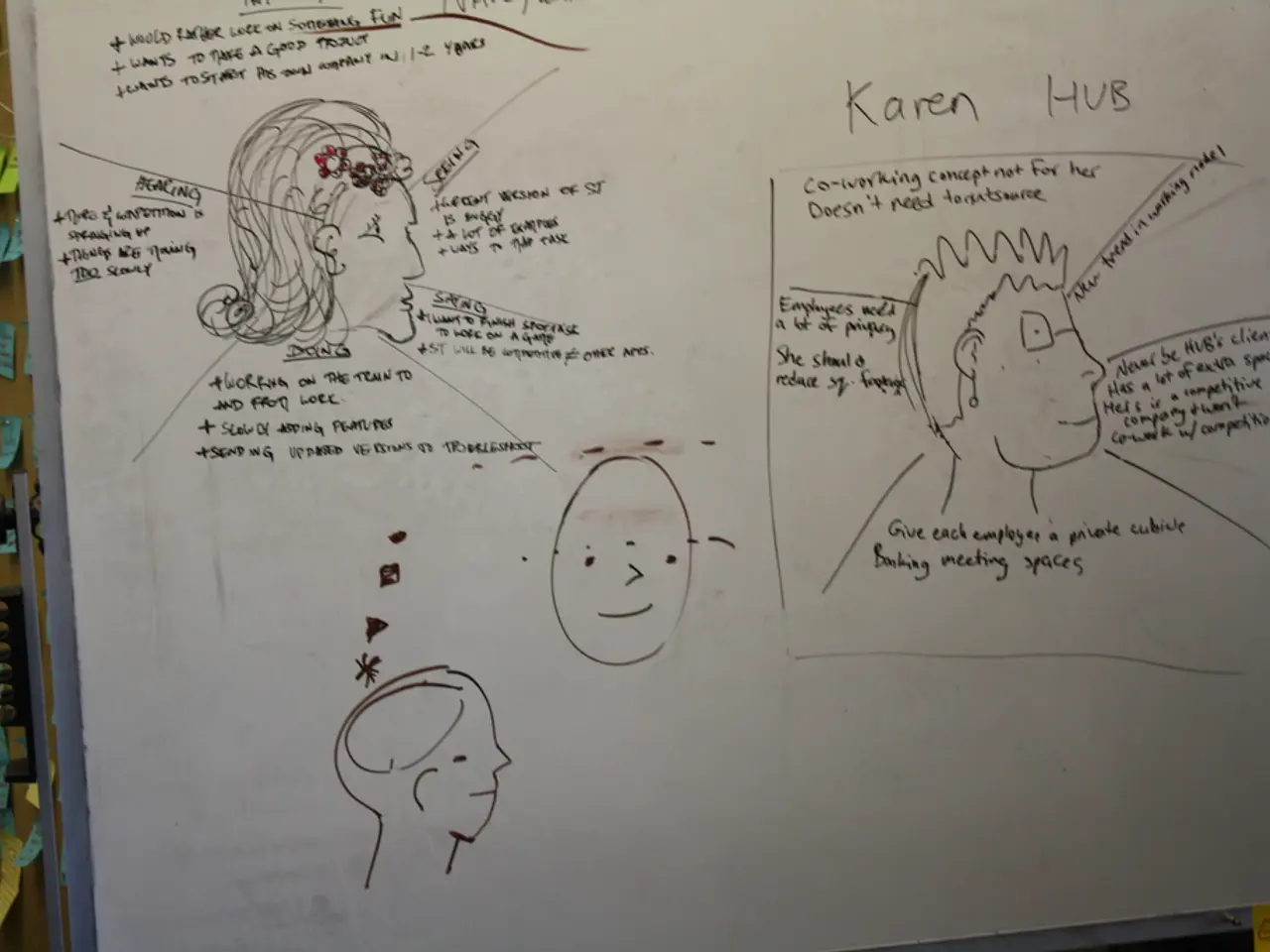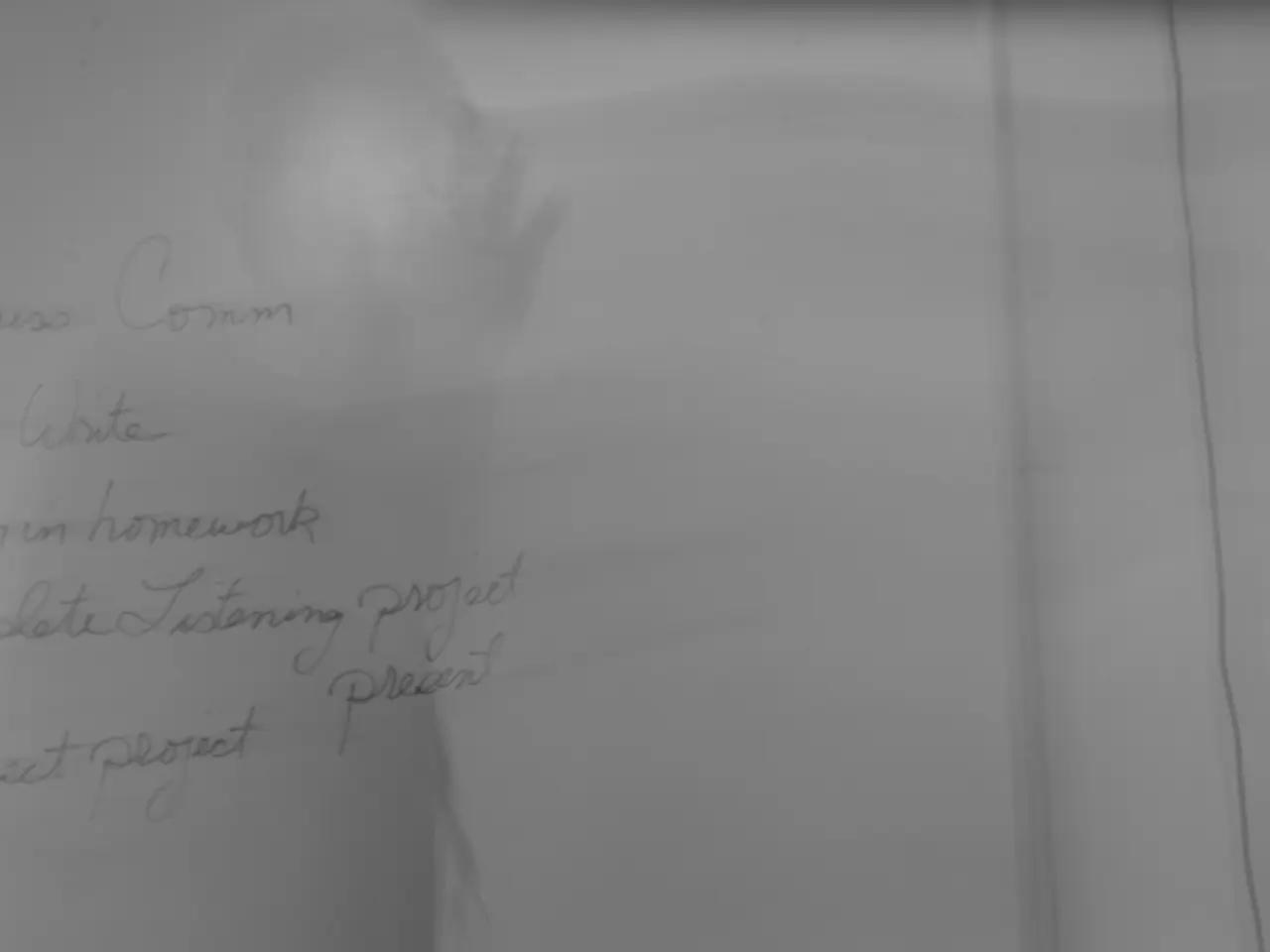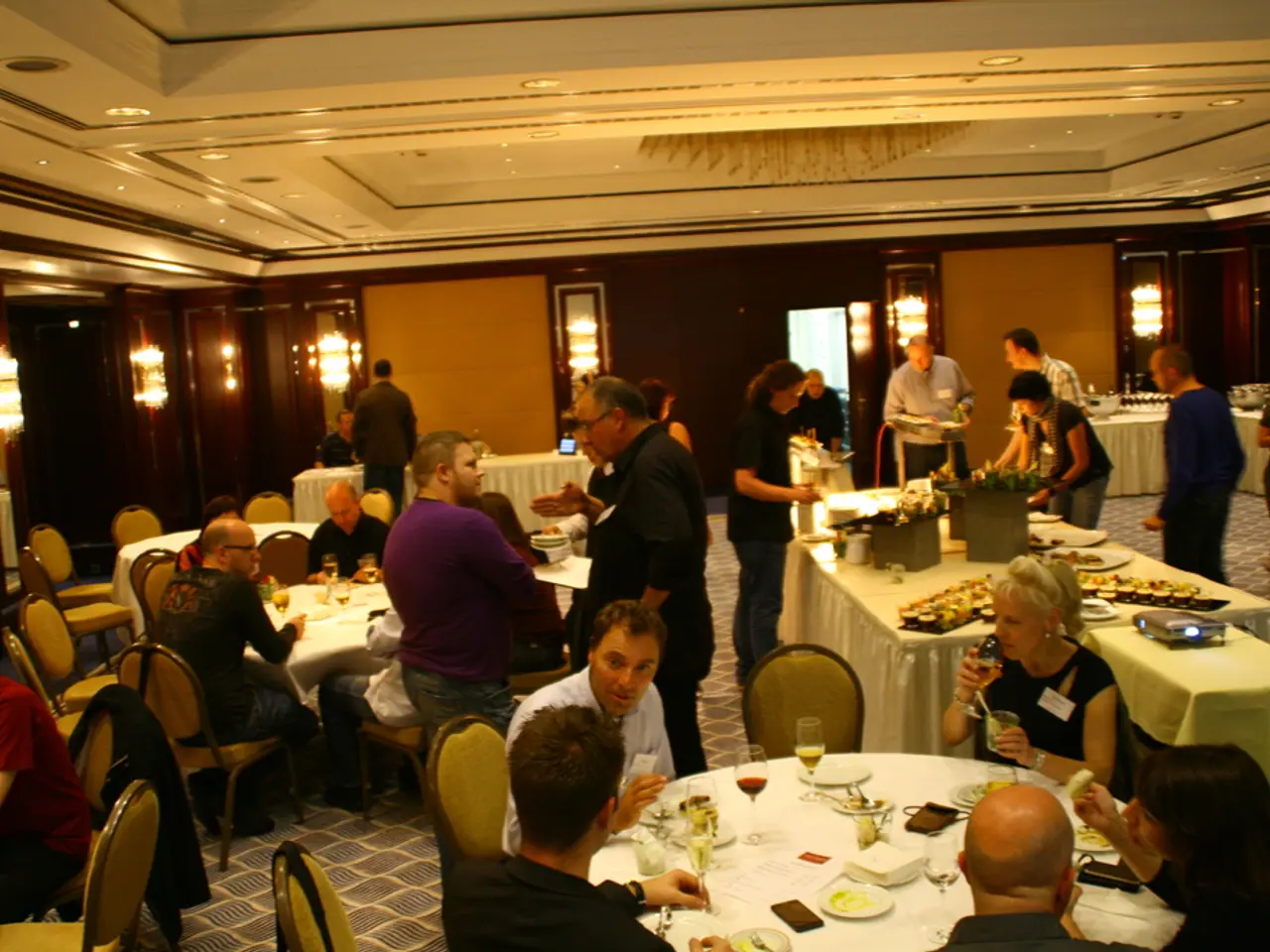Will creativity endure in America?
In the ever-evolving landscape of the creative-cultural sector, the Biden administration's influence is subtly yet significantly shaping the fields of design, architecture, and fashion. While direct, sector-specific measures may be scarce, the administration's policies on digital rights, technology, and immigration are indirectly fostering an environment that encourages talent and innovation.
Willy Chavarria, a fashion designer with an activist heart, is one of those who are feeling the ripple effects. His brand, which integrates the work of civil rights organisations into its design process, has developed close relationships with organisations such as the American Civil Liberties Union (ACLU) and the Human Rights Campaign (HRC). The brand acts as a support group for its team during challenging political times.
Florencia Rodriguez, the artistic director of the Chicago Architecture Biennial, shares a similar optimistic belief. She wants the biennial to be inclusive and critical, open to conversation and expression of different opinions. Rodriguez, born in Argentina in the 1970s and spending five years in exile due to political conditions that limited freedom of speech, understands the importance of standing up for creative expression.
Murray Moss, the founder of design gallery Moss and consultancy Moss Bureau, offers a more cautionary perspective. He suggests that culture, even when it appears solid, can be replaced more easily than imagined. Moss believes that culture can fall into bad hands and be controlled and directed towards a specific agenda. He further states that culture can be weaponized against those who are out of step.
The Chicago Architecture Biennial, despite not being directly affected financially by the cuts, influences how cultural production is thought and done. The current U.S. administration's impact on the creative-cultural sector is shaped largely by its broader technology, immigration, and regulatory policies rather than direct, sector-specific measures.
Immigration policies under the Biden administration are significant as these sectors often rely on diverse talent pools. The administration's management of migration—with efforts to balance enforcement with lawful pathways and expansion of legal immigration mechanisms—aims to facilitate the entry of global talent needed in creative and cultural industries.
The current U.S. administration's dismantling of tenets that have underpinned societal norms for decades has also impacted the cultural sector. Chavarria has been tasked to describe the impact of the present political and social landscape on his personal and professional outlook. He, along with Rodriguez, shares an optimistic belief in the power of people to pull together in the face of adversity.
The Biden administration emphasises First Amendment protections for content moderation and supports policies that affect digital creativity and technology growth. Such initiatives can indirectly benefit creative sectors by fostering an environment that encourages artistic freedom and innovation, including in design and digital cultural production.
In summary, the impact is indirect but supportive: the Biden administration’s policies on digital rights, technology, and migration contribute to sustaining and expanding the talent and innovation base critical to design, architecture, and fashion industries. No direct or detailed policies targeting these cultural sectors specifically were found in the current search results.
[1] [Source for the impact of the Biden administration on digital creativity and technology growth] [2] [Source for the impact of the Biden administration on immigration policies and their effects on creative industries] [3] [Source for the Biden administration's efforts to balance enforcement with lawful pathways and expansion of legal immigration mechanisms]
- Fashion designer Willy Chavarria's brand, with its focus on civil rights and collaboration with organizations like the ACLU and HRC, thrives in the environment fostered by the Biden administration's policies on digital rights and freedom of speech.
- In the field of general news, Florencia Rodriguez, artistic director of the Chicago Architecture Biennial, seeks to create an inclusive platform for creative expression, resonating with the Biden administration's emphasis on First Amendment protections and support for digital creativity and technology growth.






